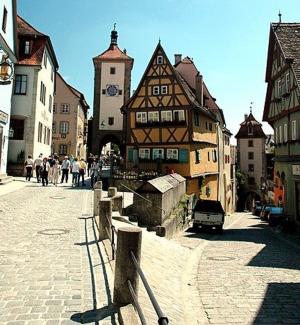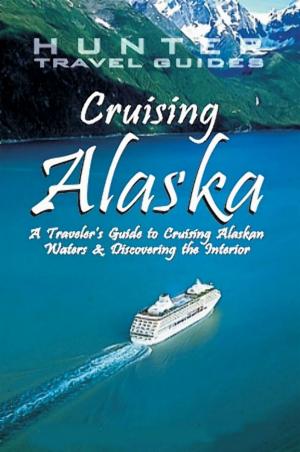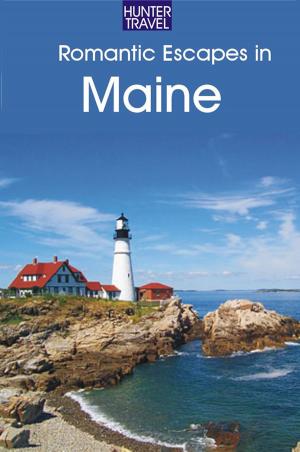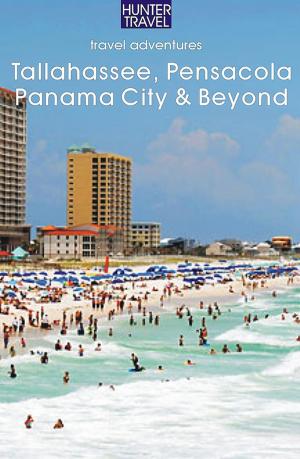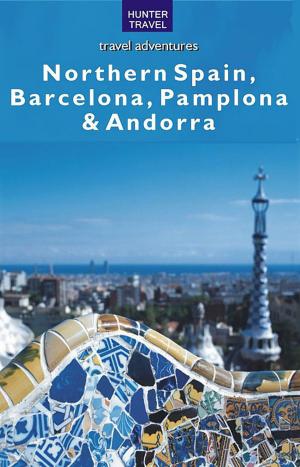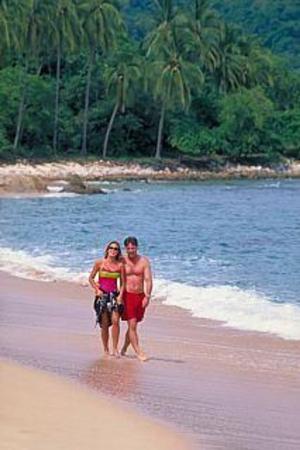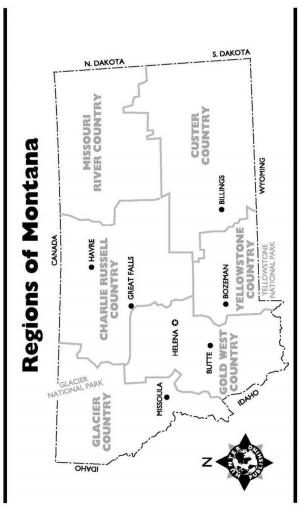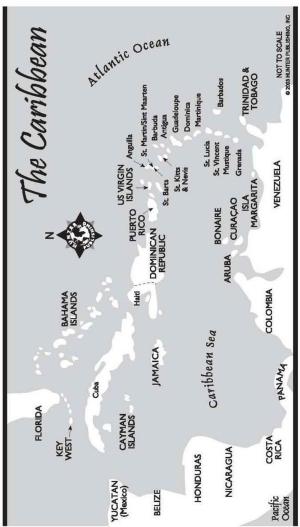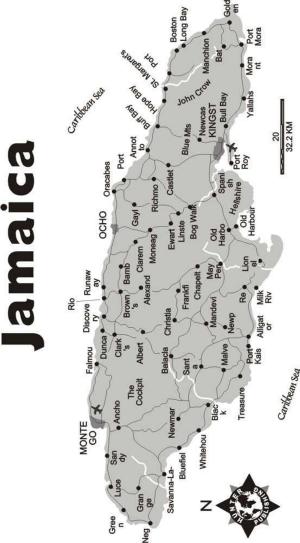| Author: | Ferne Arfin | ISBN: | 9781588437136 |
| Publisher: | Hunter Publishing | Publication: | April 12, 2011 |
| Imprint: | Language: | English |
| Author: | Ferne Arfin |
| ISBN: | 9781588437136 |
| Publisher: | Hunter Publishing |
| Publication: | April 12, 2011 |
| Imprint: | |
| Language: | English |
Starting just east of la Ciotat, the great sweep of Mediterranean coast, all the way to the Italian border, is referred to as the Côte d'Azur or the Riviera. It is a large area with dozens of beaches and, despite the coast's reputation for toney glamor alternating with brash vulgarity, it's a great location for watersports, boating, parascending, climbing, hiking and gliding. The Western Côte d'Azur is a deeply indented coast, characterized by many small towns, miles of sandy beaches, and three great mountainous headlands, called massifs. The Massif des Maures, Massif de l'Estérel and Massif de Tanneron foreshadow the march of the Alps to the sea farther east along the Riviera. They offer stunning long distance views and provide miles of good walking. For years, French vacationers kept the region their secret, staying in their holiday homes or with friends and family. As a result, the massifs remain largely undiscovered territory for foreign visitors, who usually race around and between them on motorways heading for the coast. If you stop to enjoy this region, you'll find it has its own personality and surprises. Among the attractions here are St. Tropez and St. Raphael. Like a lot of people, I got my first glimpse of the Riviera watching classic movies on television. Cary Grant and Grace Kelly trading barbs on a balcony overlooking a yacht-filled harbor, in To Catch a Thief; one of any number of James Bonds or Simon Templars stepping out of the Casino at Monte Carlo; Pink Panther movies, car chases on the Grande Corniche, David Niven in Casino Royale. They all created an indelible impression of a gorgeous, glamorous and expensive jetsetters' paradise. The term jetsetter is a little dusty these days, but substitute Eurotrash, and the idea is the same; celebrities, minor royals and fashionistas mingling with arms dealers, deposed dictators, media tycoons and shipping magnates while gossip columnists write about their lifestyles of apparently endless leisure. This is not an entirely imaginary picture. There's no denying that the Riviera is a playground for the rich and famous. Behind the walls and towering hedges of Cap Ferrat and other such places, most of what all the money in the world will buy can probably be found. But don't be put off if you're traveling on a modest budget. It is the glamor of the landscape, and all the outdoor activities to which it lends itself, that was probably what attracted the beautiful people in the first place. And that is within reach of everyone. Breathtaking drives along Les Corniches de la Riviera and coastal walks that range from gentle strolls to challenging climbs are laced between the distinctive towns and villages Antibes, Nice, Menton, Beaulieu sur Mer, Villefranche scattered almost artfully along the coast. In the skies, paragliders float down like flower petals from a handful of exceptional launch sites. Starting around Antibes and heading east, the back country rises and the Alps crowd down to the water. Along the way, the villages perchées become ever more dramatic: Èze, at 427 m/1,400 feet, tops a narrow dome of rock; La Turbie, at 500 m/1,640 feet, is where the Emperor Augustus planted the Trophée des Alpes, a 165-foot monument to the power of Rome that still lords over the coast and looks down on Monte Carlo; the medieval village of Sainte Agnès, just inland of Menton, at 800 m/2,600 feet claiming to be the highest coastal village in Europe. This is an excerpt, equivalent to about 200 print pages, from the 420-page Adventure Guide to Provence & the Cote d'Azur. Both books are highly detailed, exploring the culture, the sights and activities, the places to stay and the best restaurants. Dozens of photographs are included, plus 15 detailed maps.
Starting just east of la Ciotat, the great sweep of Mediterranean coast, all the way to the Italian border, is referred to as the Côte d'Azur or the Riviera. It is a large area with dozens of beaches and, despite the coast's reputation for toney glamor alternating with brash vulgarity, it's a great location for watersports, boating, parascending, climbing, hiking and gliding. The Western Côte d'Azur is a deeply indented coast, characterized by many small towns, miles of sandy beaches, and three great mountainous headlands, called massifs. The Massif des Maures, Massif de l'Estérel and Massif de Tanneron foreshadow the march of the Alps to the sea farther east along the Riviera. They offer stunning long distance views and provide miles of good walking. For years, French vacationers kept the region their secret, staying in their holiday homes or with friends and family. As a result, the massifs remain largely undiscovered territory for foreign visitors, who usually race around and between them on motorways heading for the coast. If you stop to enjoy this region, you'll find it has its own personality and surprises. Among the attractions here are St. Tropez and St. Raphael. Like a lot of people, I got my first glimpse of the Riviera watching classic movies on television. Cary Grant and Grace Kelly trading barbs on a balcony overlooking a yacht-filled harbor, in To Catch a Thief; one of any number of James Bonds or Simon Templars stepping out of the Casino at Monte Carlo; Pink Panther movies, car chases on the Grande Corniche, David Niven in Casino Royale. They all created an indelible impression of a gorgeous, glamorous and expensive jetsetters' paradise. The term jetsetter is a little dusty these days, but substitute Eurotrash, and the idea is the same; celebrities, minor royals and fashionistas mingling with arms dealers, deposed dictators, media tycoons and shipping magnates while gossip columnists write about their lifestyles of apparently endless leisure. This is not an entirely imaginary picture. There's no denying that the Riviera is a playground for the rich and famous. Behind the walls and towering hedges of Cap Ferrat and other such places, most of what all the money in the world will buy can probably be found. But don't be put off if you're traveling on a modest budget. It is the glamor of the landscape, and all the outdoor activities to which it lends itself, that was probably what attracted the beautiful people in the first place. And that is within reach of everyone. Breathtaking drives along Les Corniches de la Riviera and coastal walks that range from gentle strolls to challenging climbs are laced between the distinctive towns and villages Antibes, Nice, Menton, Beaulieu sur Mer, Villefranche scattered almost artfully along the coast. In the skies, paragliders float down like flower petals from a handful of exceptional launch sites. Starting around Antibes and heading east, the back country rises and the Alps crowd down to the water. Along the way, the villages perchées become ever more dramatic: Èze, at 427 m/1,400 feet, tops a narrow dome of rock; La Turbie, at 500 m/1,640 feet, is where the Emperor Augustus planted the Trophée des Alpes, a 165-foot monument to the power of Rome that still lords over the coast and looks down on Monte Carlo; the medieval village of Sainte Agnès, just inland of Menton, at 800 m/2,600 feet claiming to be the highest coastal village in Europe. This is an excerpt, equivalent to about 200 print pages, from the 420-page Adventure Guide to Provence & the Cote d'Azur. Both books are highly detailed, exploring the culture, the sights and activities, the places to stay and the best restaurants. Dozens of photographs are included, plus 15 detailed maps.


